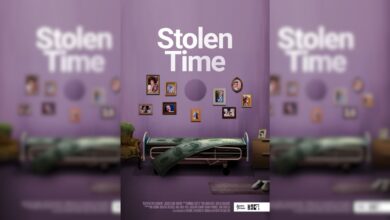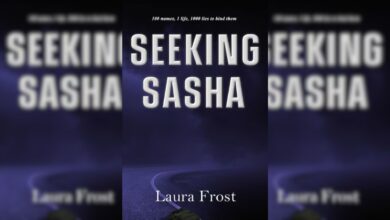Film Review: “LoST” at the 2018 Edmonton International Film Festival
Albertan film is emotionally shallow but beautifully numbing
 Supplied
SuppliedWatching LoST, I felt a lot like Dexter: I saw blood and death, yet felt nothing.
Directed by Hakan Sahin and primarily shot in Vegreville, Alberta, LoST presents the slow burn of a man’s life in the remote northern Albertan hamlet of Zama, tracking the main character in three narratives from childhood to adulthood: Peewee as a young boy (Luke Oswald), Paul as a young man (Oscar Derx), and Paul Vern as a middle-aged man (Warren Cowell).
Peewee’s parents die in a car accident when he is ten years old, leaving him to roam around town with his two friends: Michelle (Maddison Dadswell) and Easymoney (Kyle McNalley), who is visiting from boarding school. With not a lot to do, the kids take to the forest for thrills, their prep friend suggesting they kill an old man who lives in a remote cabin.
Peewee grows into Paul, who drives a sewage truck as a young man. Stifled by the searing boredom of Zama, Paul finds his only spark of life by courting Regina (Contessa Young), a beautiful local Indigenous girl.
The final narrative presents Paul Vern, the middle-aged version of Peewee, on a father-son hunting trip. (Viewers can guess the mother is Regina.) Paul Vern remains in Zama, though his son lives in the city with his mother. It’s clear, finally, that Paul Vern will never leave his deadbeat hometown.
The film tells these three narratives out of sequence, shards of each story-line quickly appearing and then disappearing. It is up to the viewer to piece together the final picture of the protagonist’s life.
The film excels from an aesthetic standpoint: there is seamless editing between the three narratives and striking cinematography. At some points, for instance, young Peewee walks through the woods and then, as if by magic, the shot smoothly transitions to one of the older Paul Vern retracing the same paths. Impressively, the forest environment is identical in these connected shots. The rustle of leaves and hue of the sun are stunningly consistent, creating fluidity between the three otherwise non-linear narratives. Continual shots of forest, blue skies, dirt roads, and the decrepit convenience store come together like a pastoral poem. The film paints an image of Zama as a place almost untouched by civilization, appealing to cultural nostalgia for simpler times.
That said, this attention to landscape overshadows character development and conflict. There are no scenes depicting the characters’ reactions to Peewee’s parents’ crash. Later, Peewee and his friends run over a pregnant dog by mistake. Again, there is no reaction to death; they simply go on into the woods. Because the characters don’t talk about these tragic events or show signs of emotion, it makes it difficult for the viewer to become invested in their stories. The protagonist’s internal struggle is apparent, but there is no way of knowing what it’s directed towards, or how we should feel about it. There is no dialogue to explain how Peewee feels, making it hard to relate to him.
Although LoST is visually pleasing, it fails to be emotionally stimulating. Instead, it is beautifully numbing.




